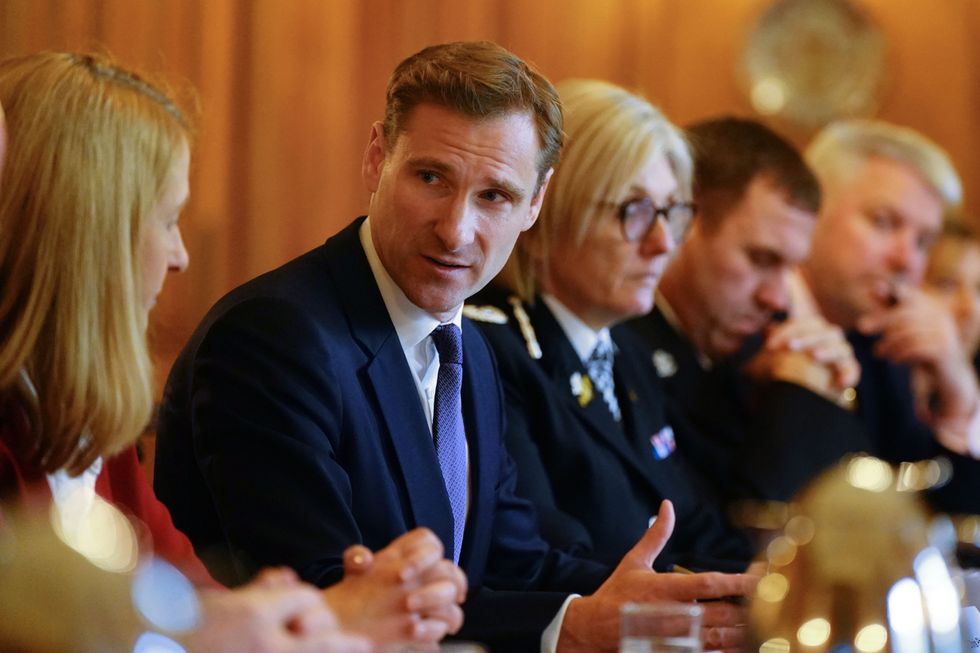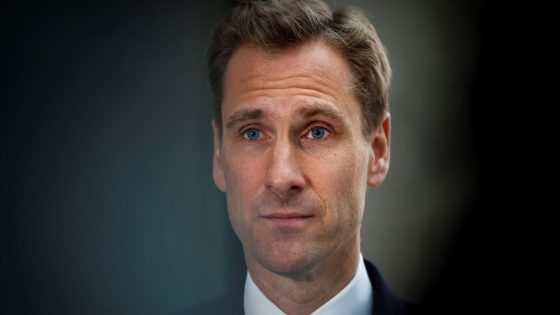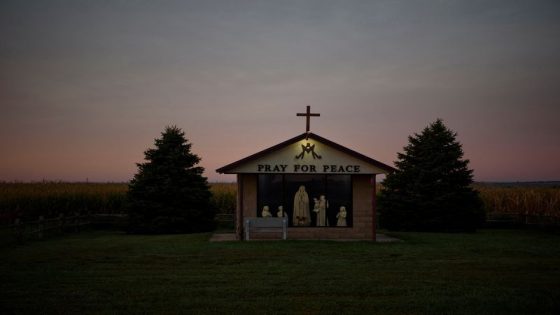Ministers have been accused of failing to prevent soaring suicide rates in police forces across the country.
More than 200 officers have taken their own lives in the past decade with one in five now suffering from Post-Traumatic Stress Disorder (PTSD).
But Chris Philp, the Minister for Policing, claims the Government lacks the “power” to help struggling officers.
It comes after campaign group Green Ribbon Policing raised concerns over spiralling rates of PTSD within forces across England and Wales. Founder, and former police constable, Sam Smith wrote to his local MP Sir John Redwood, urging the Government to establish mandatory standards in law to protect police officers’ lives.
He said: “Our police officers face a disproportionate amount of brutality, trauma, and mental health risks without adequate protection from their employers.
“Currently, 20% of UK officers suffer from PTSD, leading to impaired policing and tragically, a suicide every two weeks.”
Mr Smith wants the Government to introduce legislation requiring every police force in England and Wales to carry out annual mental health checks on their officers, conducted by trauma specialists.
Currently, they only receive physical check-ups, with mental health intervention described as ‘patchy at best’.
However, in a letter seen by GB News, the policing minister claimed there is nothing he can do.
He wrote: “The Government does not hold a power to mandate for specific actions to be taken by forces to tackle mental health issues in policing.”
He also laid the blame for poor mental health provisions at the feet of local Police and Crime Commissioners.
He added: “It is up to PCCs to decide how to balance their expenditure on policing and crime priorities including for officer and staff welfare.”
But Philp’s claims have stunned campaigners and the public who refuse to accept there is nothing he can do.
Mr Smith said: “He literally has the power to reduce deaths in policing but has chosen to distance himself from his responsibility to do so.”
Green Ribbon Policing posted Philp’s response on Twitter and accused him of failing to do his job, adding 34,000 officers are currently suffering from PTSD with suicides at an all-time high.
GB News has spoken to two police whistle-blowers who say they believe the problem has reached crisis levels, with officers deeply affected from witnessing hundreds of traumatic incidents every year.
Working at different forces in England and Wales, they’ve asked to remain anonymous, but both claim PTSD is now so widespread normal policing could soon grind to a halt.
Officer X told us she became a police officer because she wanted to help vulnerable people, but after 12 years on the force, she started to feel like an extra in a horror movie.
She said: “It’s a drip, drip, drip. It’s not something which suddenly you wake up and it’s changed. It’s so gradual that you hardly notice.“
Eventually, everything became as if it was my own story. So, when I was responding to incidents, it was as though it was about me… So it became harder to be detached and I felt red raw.”
Officer X struggled to function, was unable to remember basic information, and would often find herself staring into space.
She couldn’t eat or sleep and experienced heart palpitations. At times she even felt unsafe to wear the uniform.
She added: “I went through a period of time where I thought if one more thing happens, I’m going to explode.“
I could feel myself changing and becoming more and more angry. Not at anyone in particular, but you just don’t know how that is going to manifest.’”
She was offered counselling but found the limited number of sessions provided by her force ineffective.
She asked: “How can you cover ten or 15 years of policing in six or ten appointments? We can’t because PTSD in policing is not one incident. It’s the stress and strain of relentless incidents. And to me, PTSD and burnout is an inevitability.”
Officer Y told GB News he lost everything, including his family
GB News
Officers who have been to a traumatic incident are supposed to be offered TRIM (Trauma Risk Management) by their force, where they can talk about the experience with another officer.However, those we spoke to said accepting this help can be seen as a sign of “weakness”. The TRIM provider is usually untrained, and it can often be an officer you don’t feel comfortable talking to.
Officer Y told us that chief constables fail to understand the stresses of modern-day policing, where officers are often working alone and have little or no time to decompress after attending a traumatic incident.
He added: “They might have been on the street years ago, but now it’s a lot different. The demands are a lot more intense. We’re going to a lot more jobs and they’ve still got that old school head on of it can’t be that bad.”
Officer Y says he ‘lost everything’ including his family, after being traumatised by a road traffic collision, and therapy provided by his force’s occupational health team, was withdrawn too early.
He added: “It only ended because I’d used up my allotted amount. Even though the doctor I was seeing said that I needed more.
“I begged, please give me more… I chased up my occupational health on multiple occasions. And their answer was to give me an appointment two months later.”
The experience left Officer Y feeling like his PTSD was ‘an inconvenience’.
“It was like, let’s just do the forms, tick the boxes, cross the T’s and dot the I’s to make sure we’re covered. We don’t really care what’s going to happen to him, but at least we covered our backside.”
Officer Y told us he would cut his arms in the staff toilets and ultimately felt he had no other option than to attempt suicide. Still in recovery, he’s now urging the Government not to abandon officers like him who are crying out for help.
He said: “I feel like the Government forgets that we are still human beings, and we still need looking after. Legislation to hold forces accountable would be a lifesaver. Even if it only saves one person.”
In 2019 the Government established the Police Covenant to ensure ‘the health and wellbeing of members and former members of the police workforce’.
It meets twice yearly with consultants made up of members of police networks, associations and charities.
Mr Philp said: “The aim of these meetings is to create a two-way channel of communication between the Home Office and those who can represent the experiences of frontline officers and staff.”
However, Sam Smith, who attends the meetings for Green Ribbon Policing, says anything discussed ‘lacks legal enforcement’ and ‘Chief Constables often disregard such guidance, undermining its effectiveness.’

Policing Minister Chris Philp has been urged to act urgently to address the growing crisis
Getty
With 43 police forces in England and Wales all deciding their own mental health provisions, Mr Smith says new officers are rolling the dice with their own well-being, when deciding which force to join.
He added: “If I’m doing a job where I am so much more likely to become seriously ill, I need a standard that is going to force chief constables to invest into it because otherwise they never will.
“The minister and the Government hold the power to make changes to benefit the people of the United Kingdom.
“In this case, Mr Philp could use legislation to reduce the psychological harm policing causes so many officers. However, right now he’s abdicating that responsibility.”
GB News has reached out to Chris Philp for comment but at time of publication has received no response.
Source Agencies



